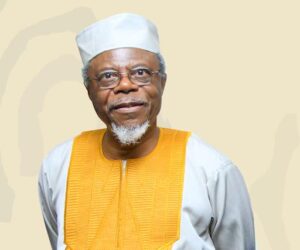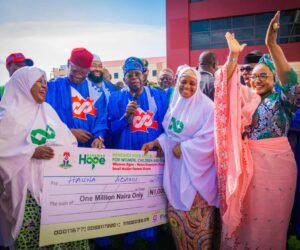COP30 is underway in Belém, Brazil, and already the atmosphere is charged with urgency, ideas and collaboration. Amid global conversations about climate action, one voice from Africa’s heartland is preparing to share a story both humbling and inspiring.
Niger state—a land long defined by its rivers, forests and vast agricultural lands—is stepping forward to demonstrate that subnational entities can be bold actors in the global green transition.
For Niger, this journey did not begin overnight. It began with an awakening—a realization that the threats of desertification, deforestation and erratic rainfall are not just environmental issues, but economic warnings. In response, a new vision was born under the stewardship of Governor Mohammed Umaru Bago: a vision to turn environmental adversity into economic opportunity.
That vision found its anchor in the creation of the Niger State Green Economy Blueprint—a bold document that redefined climate governance from abstraction to action. It was a call to rethink agriculture, energy, industry and human development through a sustainability lens.
Indeed, as the COP30 event unfolds, Niger’s delegation steps forward not as an observer, but as a participant with a compelling story to tell. Leading the team is the Deputy Governor, Comrade Yakubu Garba, a man whose roots in labour activism remind one that climate justice begins with human justice.
Alongside him are other key actors in the state’s green transformation: Dr. Abubakar Sadeeq Musa, Permanent Secretary of the Ministry of Environment and Climate Change; Alhaji Isah Mohammed, Director of Climate Change at the ministry; Mr. Obi Ugochukwu, National Consultant to Niger State on Green Economy Initiative; and my humble self, leading NG-SAGI as its Director-General—together carrying the shared vision that binds the delegation.
Our mission in Brazil is clear: to showcase Niger State as a model of subnational resilience and as a frontier of investment in Africa’s low-carbon future. Over the past two years, Niger, under the visionary leadership of Governor Bago, has crafted a development story steeped in innovation, ambition and partnership.
From its landmark collaboration with Blue Carbon of the UAE to the transformative agreement with FutureCamp Germany, the state has consistently demonstrated that sustainable development and economic growth can go hand in hand. Central to Niger’s presentation at COP30 is its “Green Economy Blueprint”, now serving as both a policy compass and an investment portfolio.
It outlines a framework where environmental conservation fuels industrial growth, and where farmers, traders and innovators can all find their place in the green value chain. Niger’s showcase at COP30 will highlight five pillars: climate-smart agriculture, renewable energy expansion, carbon market activation, green industrialization, and youth inclusion.
In agriculture, Niger is leading a quiet revolution. Over a thousand young farmers have already benefited from the Niger State Agricultural Development Fund, each empowered with capital, land and mentorship. Through climate-smart farming, these youths are cultivating hope in soils once dismissed as unyielding.
At the heart of this agricultural transition is the philosophy of sustainability—where every tree planted, every hectare reclaimed and every crop harvested contributes to climate adaptation and food security. The Niger state government’s partnership with Blue Carbon, which aims to plant one billion trees across one million hectares, stands as a testament to this philosophy.
Beyond restoring ecosystems, it is set to create tens of thousands of green jobs, unlock carbon credit markets and turn rural communities into custodians of their environment. The FutureCamp Germany collaboration adds another layer of sophistication—building the technical framework that will allow Niger to participate in voluntary carbon markets.
If successful, this could generate over ₦1 trillion in climate investments, redefining what subnational finance could look like in Africa. Renewable energy forms another cornerstone of Niger’s story. Through the NNPC Limited partnership, Niger is embarking on solar parks, mini-grids and ethanol production projects that will power homes, schools and industries.
As part of our presentation in Brazil, Niger will unveil investment opportunities under its Green Industrial Park project—a vast initiative supported by existing infrastructure like the AKK Gas Pipeline and the Gurara Waterfall, which provides potential for hydro and wind energy.
Investors are being invited to explore carbon market ventures, from afforestation and reforestation to agro-forestry and biocarbon food initiatives under the World Bank’s ISFL framework. There is also a bold invitation to develop “climate-smart agricultural clusters” focusing on methane mitigation, soil carbon sequestration and biomass management.
In Niger, sustainability is no longer rhetoric; it is a business proposition. Renewable energy investors will find open doors in projects for solar mini-grids in rural schools and clinics, as well as large-scale solar farms powering the state’s agro-industrial free trade zone near the Bola Ahmed Tinubu International Airport.
The transportation sector is equally alive with possibilities: the adoption of Compressed Natural Gas (CNG) technologies for buses, tricycles and vehicles; the establishment of CNG refilling and servicing centres; and capacity-building programmes for local technicians—all designed to create green mobility and new employment streams.
In energy efficiency, the administration of Governor Bago plans to pilot carbon credit projects from cooling systems within the state’s industrial zones—a frontier innovation that merges technology, climate science and revenue generation. The eco-tourism sector also features prominently. From the lush hills of Gurara to the serene stretch of the River Kaduna, Niger is envisioning a tourism model powered entirely by renewable energy.
Plans for eco-resorts, biogas-powered lodges and recreational hubs powered by solar technology are already on the table. Waste management completes the cycle of Niger’s sustainability narrative. The state’s upcoming “Waste-to-Wealth Programme” integrates recycling, biogas, biochar and briquette production—all under the guiding philosophy of a circular economy.
As the conference progresses in Brazil, our delegation will participate in several high-level panels, investor roundtables and technical sessions. The objective is to secure partnerships, deepen collaborations and position the state as a continental model for green subnational governance.
The symbolism of the Niger State Government’s participation at COP30, indeed, is profound. It shows that Africa’s climate future will not be dictated solely by national governments, but also by subnational actors with the courage to act locally and think globally.
When Niger speaks at COP30, it will not speak for itself alone. It will speak for the many communities who refuse to be victims of climate change, for the new generation who see sustainability not as sacrifice but as destiny, and for the continent that still believes in the promise of renewal.
By the time the curtain of the conference is drawn, Niger’s story will remain a beacon—that in the heart of Africa, a small state dared to believe that climate action could be a tool for transformation, and that by going green, a people could rediscover their greatness.
In the words of a global climate activist following the good works of our amiable Farmer Governor, “This is Niger’s moment to tell its story—to say to the world that the solutions we seek are already growing in our soil.” That sentiment captures the essence of what our delegation is carrying to Brazil: not a plea, but a proof of possibility.
In the closing days of COP30, when world leaders issue their communiqués and negotiators finalise their pledges, our delegation, for sure, will return home with renewed confidence that its voice was heard—and that its example has inspired others to act.
And when the journey back to Minna begins, what we would carry will be more than reports or MoUs. We shall return with a reaffirmed truth: that climate action, when rooted in local vision and global partnership, can make even the smallest corner of the earth shine on the grandest stage of humanity’s shared future.








